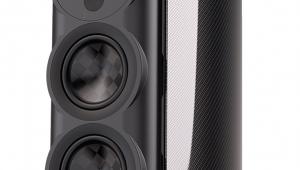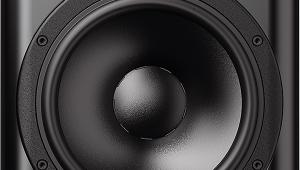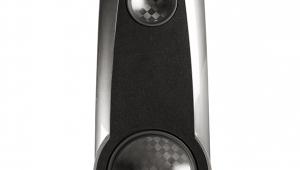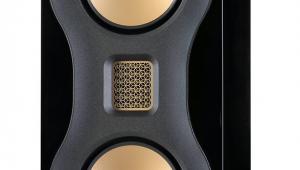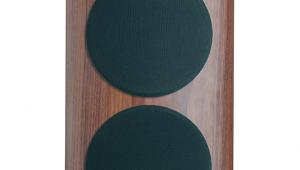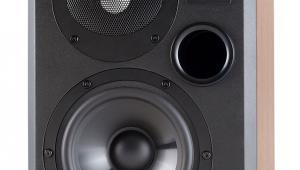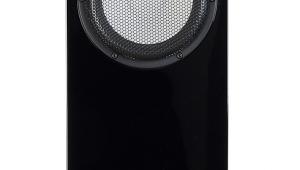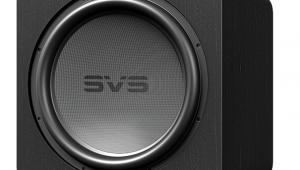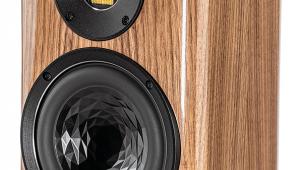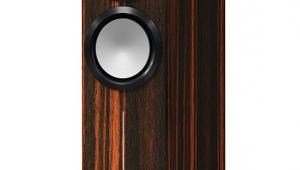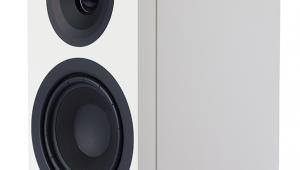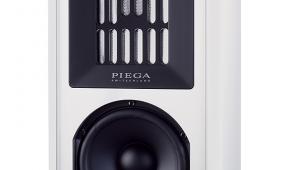Burmester B38 Page 2

Dynamic Duo
Listening to the B38, I was reminded of that famous commercial from Heineken about refreshing the parts that other beers cannot reach. The impact of this speaker’s 32cm woofer – unusually large for even a floorstander at this price – is immediately noticeable, delivering a bass performance with real extension, plus grip and control. Coupled to succinct, clean highs from the AMT tweeter, the resulting sound has plenty of dynamism, and the voicing shows no desire to add extra warmth to what’s already on the track. There’s energy and liveliness; a direct feel to the sound that’s simpatico with the loudspeaker’s physical style.
It’s a performance that worked wonders with Daft Punk’s ‘Da Funk’ [Homework; Parlophone CDV 2821], which begins with a deep, propulsive electronic bassline and rat-a-tat percussion underpinned by a thudding kick drum. Each element landed with rapid attack and decay, the space between beats making it easy to latch on to its nightclub groove. Furthermore, even at a listening level that could be described as anti-social, the B38 didn’t lose its clean, composed nature.
Bigger Bite
A trade-off for this focused, forward sound is that Burmester’s speaker isn’t going to bowl you over with warmth and syrupiness, which some might think makes it uninviting. I’ve heard ‘Diaraby’, from Ry Cooder and Ali Farka Toure’s landmark Talking Timbuktu release [World Circuit WCD 040], rendered with softer edges, giving this blues-meets-West African jazz track an enjoyably mellow, languid vibe. On the other hand, through the B38 there was more of an invitation to really focus on the varied instrumentation, the vocal harmonies and the astonishing musicianship. And, again, the bass response was simply delicious.
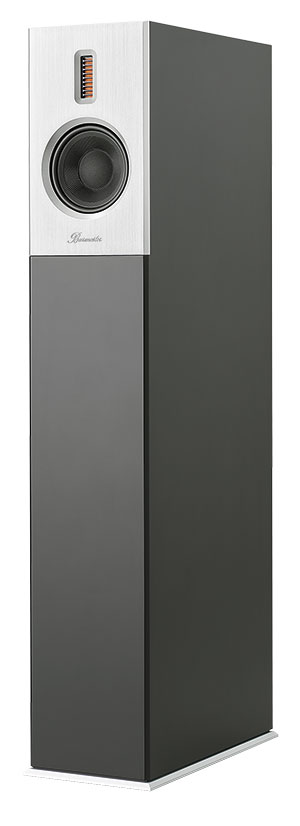
‘Orion’, an instrumental from Metallica’s Master Of Puppets [Blackened Recordings; 96kHz/24-bit], features bass player Cliff Burton using all four strings and most of the frets to create the track’s underlying melody. It’s a great example of his dexterous fingerstyle playing, but on lesser systems many of his flourishes can become lost underneath the sea of distorted guitars. That wasn’t the case this time, with the B38 providing superb insight into each quick note, while lending plenty of steely bite to the six-string riffs above.
With the option of sealing the speaker’s bass port or leaving it open, plus the ability to choose between the rear panel’s +ve or –ve ‘room adaption’ settings, there’s impressive scope for tweaking its in-room sound. Additionally, as the B38 cabinets aren’t ‘handed’, one can set them up with their bass drivers firing outwards rather than in. Burmester’s manual makes no mention of this, and during my audition I preferred having the two woofers facing each other, as the opposite – which introduces more boundary loading – was overpowering in my listening room.
I also decided I preferred the B38 in bass-reflex mode, while finding the speaker’s bass boost toggle a real boon. This simple adjustment yielded tangible differences (far more than can be achieved using the typical filter choice on a DAC, at any rate) and made getting up and down from the listening position worthwhile. Playing Michael Jackson’s ‘Don’t Stop ’Til You Get Enough’ [Off The Wall; Epic 5044212000], the funky Quincy Jones production had more edge and groove to it with the B38 set to +ve, while still sounding entirely natural.
The appeal of the B38 isn’t limited to its bass output, of course. Across a variety of genres, vocals and instrumentation were rendered clean and crisp, and the soundstaging was open and wide. Settling back with the sultry soul of Marvin Gaye’s ‘Soon I’ll Be Loving You Again’ [I Want You; Motown CD], I was struck by the presentation of his sweet-sounding centrestage lead, and how it sat forward of the singer’s own backing vocals. Placed across the image were strings, horns and congas, each having a distinct tone and texture, the rendition popping with musicality.
High Roller
Equally wonderful was the B38’s delivery of The Rolling Stones’ grandiose ‘Shine A Light’ [Exile On Main Street; Virgin/Rolling Stones Records CDV2731]. This was writ large by the two tower speakers, the honky-tonk piano riffs sounding weighty and resonant, Mick Jagger’s voice shifting from smooth to snarling, and Mick Taylor’s guitar vignettes bringing up the rear. Like many of the band’s best tracks there’s almost too much going on here, with reggae, gospel and blues influences all fighting to be heard, and it’s to the B38’s credit that the recording sounded like one, brilliantly harmonious whole.
Given everything from Massive Attack’s Blue Lines trip-hop set [2012 Mix/Master, Virgin; 96kHz/24-bit] to the romantic sweeps of Howard Shore’s orchestral theme to The Mask Of Zorro [Sony Classical CD], Burmester’s B38 continually comes up trumps, not just in the scale of its staging and deep-diving bass, but in its directness, clarity and effortless highs. Could it sound a little warmer? That’s for you to decide. I loved it.
Hi-Fi News Verdict
Yes, the B38 is slim for a near-£23k floorstander, but it’s still a big speaker and delivers a correspondingly largescale sound that ticks off the boxes when it comes to bass weight, dynamic punch, detail, openness and more. Clearly engineered with finesse both inside and out, it’s also flexible regards setup while being smartly styled. With models like this, Burmester’s rock-solid reputation can only grow.
Sound Quality: 87%

